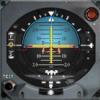
Sign in to follow this
Followers
0

Reading a P variable in C/C++ code
By
ChrisK, in FSX/FSX-SE Aircraft and Panel Design Forum - How To


By
ChrisK, in FSX/FSX-SE Aircraft and Panel Design Forum - How To